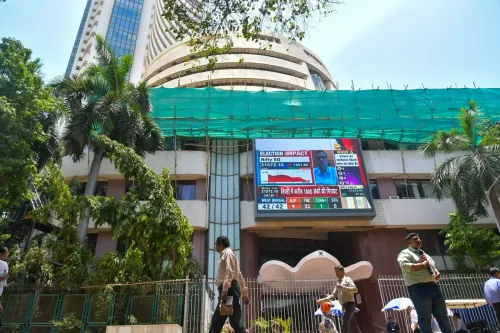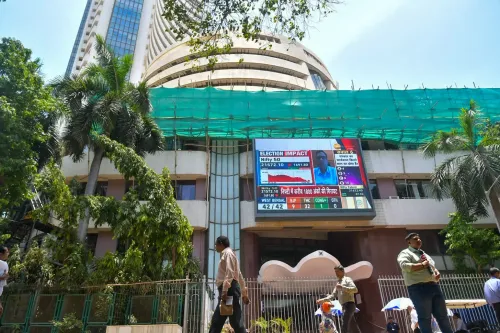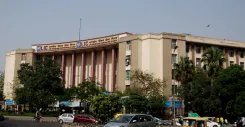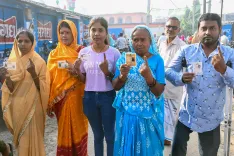Is the Government Dedicated to Achieving WHO's Doctor-Patient Ratio of 1:1000?
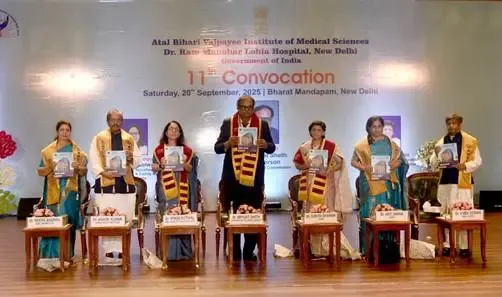
Synopsis
Key Takeaways
- Commitment to WHO's doctor-patient ratio.
- Current ratio is 1:834.
- Efforts to enhance medical education quality.
- Importance of empathy in medicine.
- Graduates urged to remain humble.
New Delhi, Sep 20 (NationPress) The Union government is fully committed to realizing the World Health Organization (WHO) recommended doctor-patient ratio of 1:1000, as stated by Dr. Abhijat Chandrakant Sheth, the Chairman of the National Medical Commission (NMC), during the 11th Convocation Ceremony at the Atal Bihari Vajpayee Institute of Medical Sciences (ABVIMS) and Dr. Ram Manohar Lohia Hospital.
In his address, Sheth congratulated the graduating students, their parents, and faculty for their commitment to guiding the students towards a career in healthcare.
“The government is devoted to enhancing the number of doctors across the nation to achieve the World Health Organization’s ideal of a uniform doctor-patient ratio of 1:1000,” Sheth remarked, noting that the existing doctor-population ratio in India is 1:834.
He also mentioned ongoing initiatives aimed at establishing a balanced undergraduate (UG) to postgraduate (PG) ratio of 1:1, with the goal of raising the quality of India’s healthcare system to match that of developed nations.
Furthermore, Sheth emphasized innovative programs being launched by the National Board of Examinations in Medical Sciences and the NMC, such as the integration of skill-based and virtual learning with traditional education to meet the needs of competency-based medical training.
“Prioritize your health and well-being, endure challenges, and commit to lifelong learning,” he advised the students.
Dr. Vinod Kotwal, Additional Secretary at the Ministry of Health and Family Welfare, highlighted that this event symbolizes the start of a lifelong dedication to the health and welfare of the nation.
Kotwal encouraged students to keep pursuing knowledge, discovery, and service with integrity, compassion, and respect as their core values.
“Medicine transcends simply curing illness; it embodies caring for the patients who are affected,” he stated.
Dr. Sunita Sharma, Director General of Health Services (DGHS), also stressed the importance of empathy for patients.
“This noble profession is founded on compassion and a steadfast commitment to human life,” Sharma remarked, urging graduates to stay humble and grounded regardless of their achievements.
During the event, degrees were conferred to 250 postgraduate students, Doctorate of Medicine (DM) candidates, and the inaugural cohort of 100 MBBS graduates.


